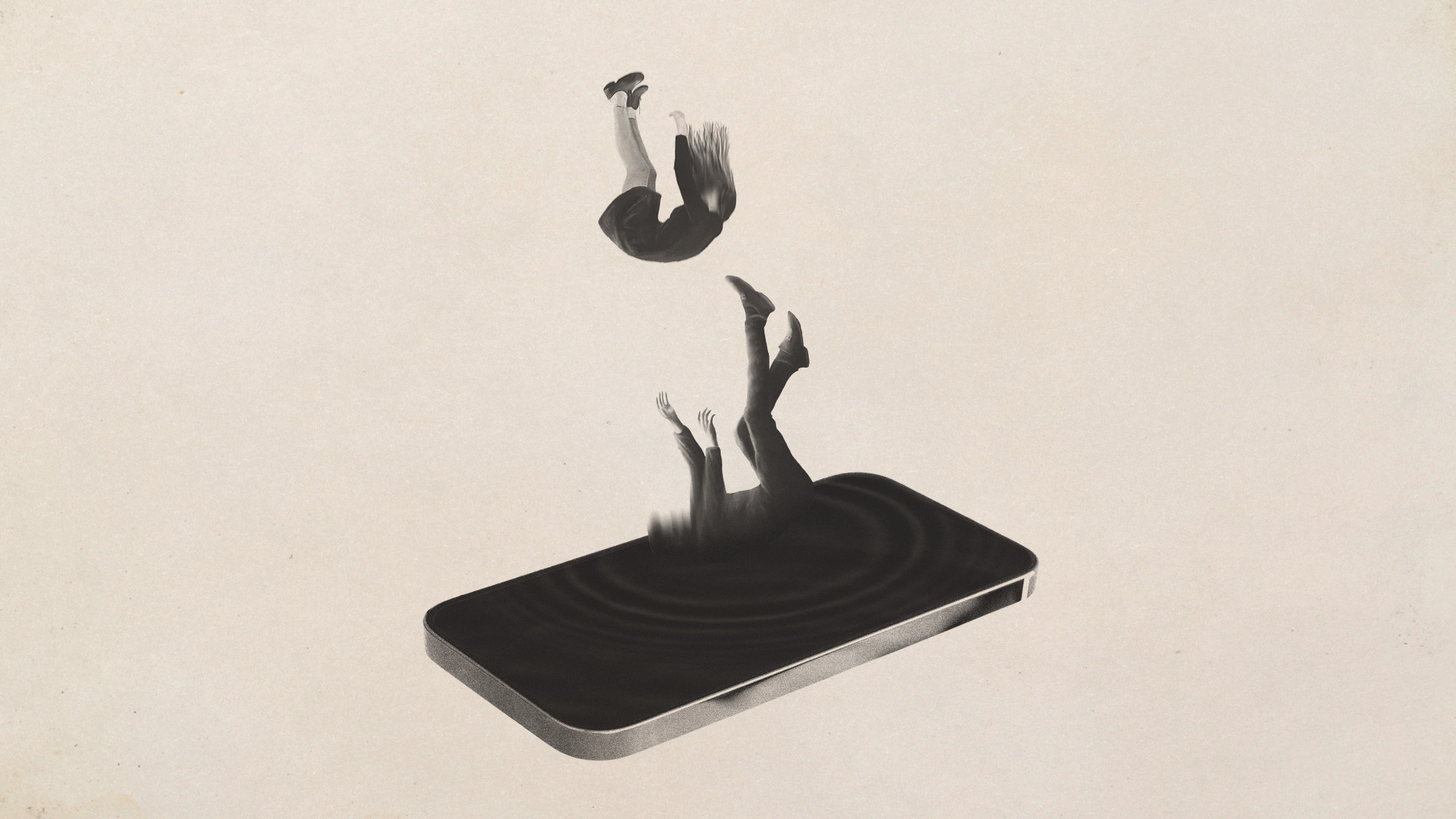Murakami is terrible now
His new novel Killing Commendatore only underscores how far the author has fallen since The Wind-Up Bird Chronicles


There is no way to put this nicely: Haruki Murakami is terrible now.
I say this as one of the novelist's biggest fans. For years, I was that person, the one who would exclaim wait, you haven't read Murakami!? and proceed to hand over a list of what to read and in what order (start with The Wind-Up Bird Chronicle, don't neglect his short stories). But with the publication of his latest novel, Killing Commendatore, into English on Tuesday, I have to admit at last that Murakami is getting harder and harder to defend. At this point, it feels as if he is just filling in Murakami Bingo spaces at the neglect of actual engaging storytelling.
A perennial favorite for the Nobel Prize in Literature, Murakami is one of the most beloved writers in the world, with his work published in more than 50 languages. He is the only author in translation who can pack midnight release parties in the United States. In his native Japan, Killing Commendatore got an eye-popping first-run of 1.3 million copies last year. More than being known for, say, his prose style or his richly plotted narratives, Murakami is beloved for the genre he has created, his own particular take on magical realism, recognizable by tropes like pasta, cats, an oppressive sense of loneliness, and secret worlds that coexist in or beside our own.
The Week
Escape your echo chamber. Get the facts behind the news, plus analysis from multiple perspectives.

Sign up for The Week's Free Newsletters
From our morning news briefing to a weekly Good News Newsletter, get the best of The Week delivered directly to your inbox.
From our morning news briefing to a weekly Good News Newsletter, get the best of The Week delivered directly to your inbox.
It is a formula that has worked well for him for decades although after finishing Killing Commendatore this weekend, I couldn't help but look back at Murakami's last three novels and wonder ... were they even any good? While Killing Commendatore's predecessors, 1Q84 (published in English in 2011) and Colorless Tsukuru Tazaki and His Years of Pilgrimage (published in English in 2014), received generally positive reviews in the U.S., both were deeply flawed books: Colorless Tsukuru Tazaki is a vague probing of the fallout of a false rape allegation, more interested in the impact on the male victim than the motivations of his female friend, and 1Q84 is an unwieldy door-stopper in desperate need of an editor. Where was the depth of Wind-Up Bird? Or the concision of A Wild Sheep Chase?
Killing Commendatore is at least the best of Murakami's most recent novels — it is coherent and not outwardly offensive — although it still succumbs to the author's worst tendencies. Modeled very roughly after The Great Gatsby, the novel follows an unnamed portrait painter during the nine months he is living in the mountains while separated from his wife. Yet over the course of 700 pages, you come to deeply feel Killing Commendatore's length; passages of exposition are redundant, and the excruciatingly slow build to action makes you wonder about Murakami's strategy of not having "any plan at all" when he begins a new book. What's more, the tropes that served as delightful flavoring in his earlier works begin to feel practically meme-like in their appearances, almost like mechanical inclusions by the author. Of 19 spaces on Grant Snider's "Haruki Murakami Bingo" board, I counted 16 in reading Killing Commendatore, including "weird sex," "dried-up well," and "unusual name." By the time a "secret passageway" was mentioned, I was practically rolling my eyes.
While Murakami has never been known for being a brilliant prose writer, on a sentence-by-sentence level Killing Commendatore is a sadly unimpressive effort: "Look deep enough into any person and you will find something shining within," the narrator reflects, although not very deeply. The mysterious Gatsby-like neighbor Menshiki is always smiling "faintly." Murakami uses variations of the simile "like a cat" 12 different times. Certain turns of phrase indicate the author still has a unique eye he can turn on the world — a night is as hushed "as if I were at the bottom of a deep sea," clouds are "like some wandering spirits from the past ... in search of lost memories" — but too often mornings are "chilly," coffee "as black as a moonless night," and silence "too quiet."
Murakami has struggled to write three-dimensional women for years, and his worst tendencies come to a head in Killing Commendatore, in which the 36-year-old protagonist both rapes his wife in a dream and repeatedly sexualizes his 13-year-old neighbor, Mariye. Apparently oblivious to, or dismissive of, criticisms of using female characters as props, Murakami has Killing Commendatore's narrator repeatedly admire Mariye's body, with no consequence to character development or plot. "I could see how pretty her legs were," the narrator observes at one point. "Her bulky tights couldn't hide that. When she matured a bit more, those legs would attract the gaze of many men." At another moment, Mariye discusses at length her disappointment in her bra size with the narrator, who reassures her that "I'm sure they'll get bigger." The comments serve no purpose to the narrative, making you wonder at their gratuitous inclusion at all.
A free daily email with the biggest news stories of the day – and the best features from TheWeek.com
Killing Commendatore does not lack ambition, although Murakami bites off more than he bothers to chew. What could have been a meditation on 21st-century anonymity, or lack thereof, feels more like the grumblings of a vinyl-loving Luddite. You can feel Murakami probing the nature of art — and his own craft — in certain passages, but the conclusions he reaches are hardly groundbreaking: "To turn out a true portrait," the narrator reflects, "I had to discover the story that must be painted. Only that could get the ball rolling." Murakami flirts with the same kind of seamless magical realism that made novels like Sputnik Sweetheart so unique: After discovering a long-lost painting in the attic, the narrator begins to hear a bell ringing, as if summoning him, from beneath a pile of heavy stones outside his home. But while this is the richest part of the book, the lightest application of the bizarre, Murakami then comes to have the protagonist haunted by the physical manifestation of a capital-I "Idea," which is more than a little heavy-handed.
For historic weight, Murakami adds a dash of Nazis and the Rape of Nanjing, additions that feel more like a hastily laid backstory than an essential side plot. Their inclusion lacks, for example, the same intrigue as sections about Japan's Mongolian colony, Manchukuo, in Wind-Up Bird, a place both real and, somehow, not, where the bloody deeds of the Japanese manifest as curses back home. In Killing Commendatore, World War II feels like another box Murakami needed to check.
Without 1Q84 and Colorless Tsukuru Tazaki, Killing Commendatore might have just feel like a misstep in Murakami's career, a misguided effort to revisit the weird themes and images that helped make him a household name. But looking at the last decade of the author's career, it is hard to dismiss another terrible book as a fluke. Murakami superfans this month ought to instead stick to Burning, a South Korean adaptation of Murakami's short story, "Barn Burning," which seems to understand the author's strengths better than he does — an establishment of atmosphere, of character, of restraint in storytelling.
To those who still seek to be enchanted by the latest Murakami, be warned: Killing Commendatore might instead shake you back awake.
Jeva Lange was the executive editor at TheWeek.com. She formerly served as The Week's deputy editor and culture critic. She is also a contributor to Screen Slate, and her writing has appeared in The New York Daily News, The Awl, Vice, and Gothamist, among other publications. Jeva lives in New York City. Follow her on Twitter.
-
 Digital addiction: the compulsion to stay online
Digital addiction: the compulsion to stay onlineIn depth What it is and how to stop it
-
 Can Trump bully Netanyahu into Gaza peace?
Can Trump bully Netanyahu into Gaza peace?Today's Big Question The Israeli leader was ‘strong-armed’ into new peace deal
-
 ‘The Taliban delivers yet another brutal blow’
‘The Taliban delivers yet another brutal blow’Instant Opinion Opinion, comment and editorials of the day
